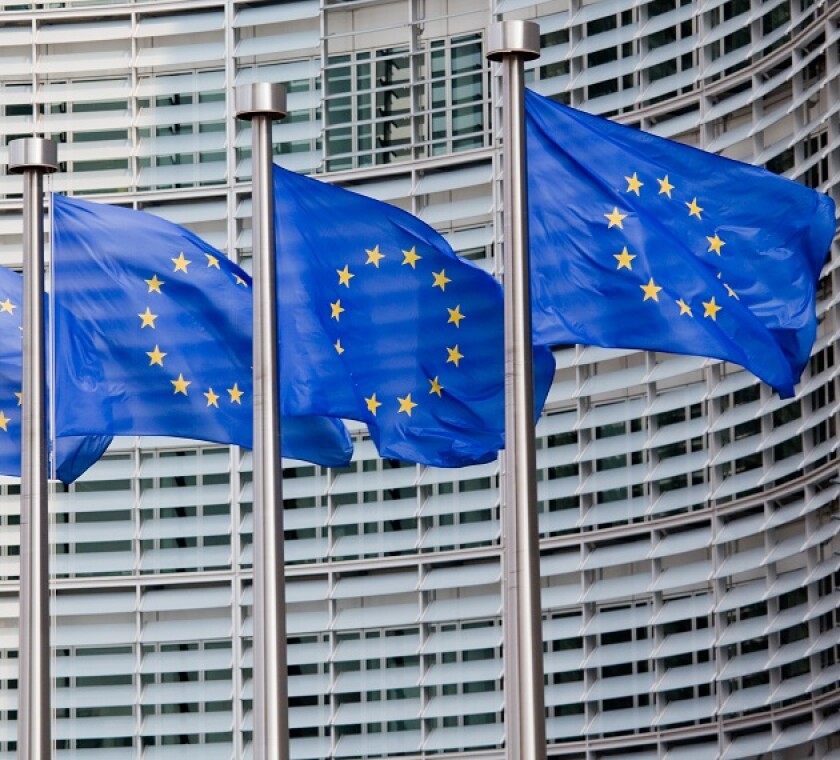EU member states approved the world’s first carbon border import tax on Tuesday, April 25, after two years of negotiating its introduction.
The Carbon Border Adjustment Mechanism (CBAM), which was voted on by the 27 EU members, will be put into action on June 1 2026. It will begin by targeting imports of goods with a high-carbon impact, including cement, iron, fertilisers and steel.
The carbon border tax aims to raise the costs of such imports to deter EU-based companies from moving production to jurisdictions with more relaxed environmental policies. This plan reinforces the EU’s commitment to net-zero carbon emissions by 2050.
Although the CBAM will begin in 2026, this will be a gradual introduction with the regime expanding to cover lower-carbon goods. However, from October 1 2023, businesses will need to produce an annual report detailing the goods imported in the previous year.
EY will not cut jobs in Asia-Pacific and Oceania after ‘Project Everest’
EY’s Asia-Pacific and Oceania divisions have told their staff they won’t be cutting jobs in those regions but there may be cuts on bonuses and new hires.
David Larocca, CEO of EY Oceania in Sydney, told the Australian Financial Review on Tuesday, April 25, that the firm may hold back on these fronts for some members of staff. Patrick Winter, managing partner at EY Asia-Pacific in Hong Kong SAR, told partners last week that there are no plans to make redundancies in the region.
Following ‘Project Everest’, EY is cutting jobs in the US and the UK because of the costs of the plan to separate its audit and consulting functions into two new businesses. Recruiters expect the firm to lose people after the project was cancelled.
The ‘big four’ firm’s Oceania division has 600 partners and 9,000 other professionals across Australia, Fiji, New Zealand and Papua New Guinea. Meanwhile, EY Asia-Pacific has over 2,800 partners in 23 jurisdictions.
Pakistan strives for ‘true tax potential’
Pakistani Finance Minister Ishaq Dar instructed the Federal Board of Revenue (FBR) on Tuesday, April 25, to step up efforts to achieve the country's “true tax potential”.
Dar made the remarks while heading a meeting in Islamabad to review the FBR’s performance.
The Pakistani government has a fiscal goal to raise Rs7.4 billion ($26 billion), and the FBR claims it has only made Rs3.9 billion, meaning the country has only reached 52.7% of its target.
FBR Chairman Asim Ahmad said that the tax administration would boost enforcement and collection to meet its revenue target by June 2023. Ahmad explained that the FBR had increased direct tax collection by 48% already.
Burberry criticises Sunak for loss of VAT breaks over Brexit
Gerry Murphy, chairman of luxury goods company Burberry, has criticised the UK government for scrapping VAT refunds for tourists.
Prime Minister Rishi Sunak was attending the Business Connect conference on Monday, April 24, when Murphy questioned his decision to scrap VAT breaks for tourists. He called this decision “perverse”.
Murphy said the UK was the “least attractive” shopping destination in Europe, Sky News reported. He asked the prime minister to consider reversing this decision and stressed that it doesn’t just affect the luxury industry, but also travel, hotels and airlines.
“We are actively exporting business as a result of that policy to our continental competitors,” said Murphy.
In response, Sunak declined to discuss tax policy at the conference but said he will look at the data of the VAT change.
“We take this very seriously; we are here to listen and engage,” said Sunak.
Swiss finance minister urges voters to support minimum rate
Swiss Finance Minister Karin Keller-Sutter called on voters to support the plan to implement the OECD’s global minimum corporate tax rate on Monday, April 24.
The Swiss federal government wants to secure a ‘yes’ vote in the upcoming June referendum on the 15% minimum rate, reported Bloomberg. This is despite concerns that the higher level of corporate tax could make the country less competitive.
Switzerland has a federal corporate rate of 8.5% with differing taxes in the country’s cantons bringing the levy up to between 11.9% and 21%. However, the Swiss government aims to implement the 15% effective rate through a qualified domestic top-up tax (QDMTT).
This may allow Switzerland to retain its low federal and cantonal rates, except for certain companies in scope of the QDMTT. The referendum on the tax deal will be held on June 18.
Brazilian senator proposes extension of new TP regime
Senator Magno Malta has proposed the extension of Brazil’s new transfer pricing regime until 2025.
Brazil’s TP reform is expected to be adopted this year and come into effect in 2024, once it has been approved.
However, Senator Malta is seeking changes to Articles 46 and 47 of the Conversion Bill to delay the application of the regime by a year to allow more time to prepare.
“Despite the delay, the new Brazilian TP system managed to evolve after the joint project launched by Brazil and the OECD in 2018 and is now finally being discussed by the National Congress,” said Allan Fallet, partner at Mauger Muniz in São Paulo.
“In general, such an amendment is a change to the wording of a bill or a motion that is proposed by a provisional measure or member of the National Congress,” he added.
Malta submitted his proposal on April 17.
The initial term of validity of a provisional measure is 60 days and is automatically extended for the same period if a vote is not concluded in both houses of the National Congress.
Next week in ITR
ITR will be following up on the Australian proposal to make country-by-country reporting (CbCR) public on a global basis. The Australian government’s consultation on public CbCR closes today after just three weeks.
We will also be looking at the ‘dirty dozen’ tax scams highlighted by the US Internal Revenue Service, and what companies can do to avoid falling for this wave of fraud.
Readers can expect these stories and plenty more next week. Don’t miss out on the key developments. Sign up for a free trial to ITR.












